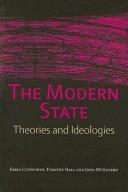| Listing 1 - 10 of 11 | << page >> |
Sort by
|

ISBN: 0415216176 0415216184 Year: 2003 Publisher: New York : Routledge,
Abstract | Keywords | Export | Availability | Bookmark
 Loading...
Loading...Choose an application
- Reference Manager
- EndNote
- RefWorks (Direct export to RefWorks)
Human ecology. --- Nature --- Environmental protection. --- Ecologie humaine --- Homme --- Environnement --- Effect of human beings on. --- Influence sur la nature --- Protection

ISBN: 1134606443 1134606451 1280149078 0203994906 9780203994900 9780415216173 0415216176 9780415216180 0415216184 9786610149070 6610149070 9781134606450 9781134606405 1134606400 9781134606443 0415216184 0415216176 9781280149078 1930665008 9781930665002 Year: 2003 Publisher: London New York Routledge
Abstract | Keywords | Export | Availability | Bookmark
 Loading...
Loading...Choose an application
- Reference Manager
- EndNote
- RefWorks (Direct export to RefWorks)
At the start of the twenty-first century, it can be argued that human societies have a greater impact on the environment than ever before. We have always been dependent upon, and interacted with, the 'natural' environment. However, the dramatic social changes of the past three centuries, have altered the form of our relationship with non-human nature to the extent that some would see people/planet relations as in a situation of crisis.Environment and Society provides a comprehensive and critical account of the ways in which we can think about the relationship between human socie
Human ecology. --- Nature --- Environmental protection. --- Ecology --- Environment, Human --- Human beings --- Human environment --- Ecological engineering --- Human geography --- Environmental quality management --- Protection of environment --- Environmental sciences --- Applied ecology --- Environmental engineering --- Environmental policy --- Environmental quality --- Anthropogenic effects on nature --- Ecological footprint --- Anthropogenic soils --- Human ecology --- Effect of human beings on. --- Social aspects --- Effect of environment on --- Effect of human beings on
Book
ISBN: 9781138673250 Year: 2018 Publisher: London : Taylor and Francis,
Abstract | Keywords | Export | Availability | Bookmark
 Loading...
Loading...Choose an application
- Reference Manager
- EndNote
- RefWorks (Direct export to RefWorks)
"This is the first book to make the argument for an emancipatory project from within a posthuman framework. Responding to critics, Cudworth and Hobden argue that while some posthumanisms may be less critical, it is possible to develop a political programme from a posthuman perspective. Cudworth and Hobden develop such issues by addressing the following questions: How have ideas about emancipation been developed, and does the notion of emancipation still hold relevance for the contemporary world order? Is it possible to have a non-Utopian form of emancipation? What are the implications of differing posthuman/new materialist viewpoints for an emancipatory project? In a world typified by complexity, how is it possible to pursue political projects? The chapters consider various interpretations of the term 'emancipation', looking at work that has appeared within the posthumanist framework such as Bruno Latour, William Connolly, and Jane Bennett. The authors develop their own account of posthumanism, demonstrating how it avoids the problems that have been found within this framework, and considering the possibilities for emancipatory projects and public policy. It will be of great interest to postgraduates and scholars of International Relations, Political Theory, Environmental Studies, and Sociology."--Provided by publisher.
Critical theory. --- Humanism --- International relations --- POLITICAL SCIENCE --- Philosophy. --- Government --- International. --- International Relations --- General.
Book
ISBN: 1350221856 1780322216 1283355094 9786613355096 1848135165 9781848135161 1848135149 9781848135147 Year: 2012 Publisher: London, England : [London, England] : Zed Books, Bloomsbury Publishing,
Abstract | Keywords | Export | Availability | Bookmark
 Loading...
Loading...Choose an application
- Reference Manager
- EndNote
- RefWorks (Direct export to RefWorks)
Book
ISBN: 9780748629565 Year: 2022 Publisher: Edinburgh
Abstract | Keywords | Export | Availability | Bookmark
 Loading...
Loading...Choose an application
- Reference Manager
- EndNote
- RefWorks (Direct export to RefWorks)
Book
ISBN: 1409461912 9781409461913 Year: 2018 Publisher: Abingdon, Oxon: Routledge,
Abstract | Keywords | Export | Availability | Bookmark
 Loading...
Loading...Choose an application
- Reference Manager
- EndNote
- RefWorks (Direct export to RefWorks)
Science and international relations --- International relations --- Nature
Book
ISBN: 9781433119705 1433119706 Year: 2013 Publisher: New York: Peter Lang,
Abstract | Keywords | Export | Availability | Bookmark
 Loading...
Loading...Choose an application
- Reference Manager
- EndNote
- RefWorks (Direct export to RefWorks)
Over the last 250 years, the global capitalist system has been responsible for rapid economic growth and technological change. The consequent increase in production of an ever-changing and expanding range of products and services has lifted hundreds of millions of people out of poverty and deprivation. This book suggests, however, that the primary purpose of current production and distribution is not to satisfy human needs but to create profit for the owners of capital that in turn has devastating consequences for the environment and for vulnerable people. Multidisciplinary in perspective, contributors to this volume addresses issues of inequality which affect both developed and developing countries. While they are concerned with the framework of income distribution they also explore the wider dynamics of capitalist systems of production and consumption and examine the dimensions of inequality from both an economic and socio/cultural perspective. The book has three key themes: relations between technologies, inequalities and exploitation; issues surrounding technologies and development; and the nature of technologies and their associated opportunities in the face of the future. That future is contested, and in the present context of persistent inequalities, a debate about where we might be going and how we might get there is crucial. This book makes a trenchant and challenging contribution to this debate.
Information technology --- Information technology --- Capitalism --- Technological innovations --- Equality --- Digital divide
Book
ISBN: 1003222625 1000830071 1003222625 1032120088 Year: 2023 Publisher: Milton Taylor & Francis Group
Abstract | Keywords | Export | Availability | Bookmark
 Loading...
Loading...Choose an application
- Reference Manager
- EndNote
- RefWorks (Direct export to RefWorks)
Book
ISBN: 9781032120089 9781032120065 9781003222620 Year: 2023 Publisher: London Routledge, Taylor & Francis Group
Abstract | Keywords | Export | Availability | Bookmark
 Loading...
Loading...Choose an application
- Reference Manager
- EndNote
- RefWorks (Direct export to RefWorks)

ISBN: 9780748621767 9780748621750 Year: 2007 Publisher: Edinburgh Edinburgh university press
Abstract | Keywords | Export | Availability | Bookmark
 Loading...
Loading...Choose an application
- Reference Manager
- EndNote
- RefWorks (Direct export to RefWorks)
| Listing 1 - 10 of 11 | << page >> |
Sort by
|

 Search
Search Feedback
Feedback About UniCat
About UniCat  Help
Help News
News